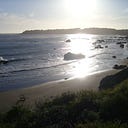Gale Tobin on the Difference Between Being Vegan and Being on a Plant-Based Diet
There have been a number of misconceptions formed around the terms vegan and plant-based. Plenty thinks that there isn’t any difference between the two and that is understandable given that a vegan cannot be vegan unless he or she eats a plant-based diet. But sometimes, this is not the case; a vegan can still be vegan without having to follow a plant-based diet; an individual can follow a plant-based diet without being a vegan. While both are certainly related, it does not always go hand in hand.
Veganism vs. Plant-Based Diet
Veganism is defined as “a philosophy and way of living which seeks to exclude — as far as is possible and practicable — all forms of exploitation of, and cruelty to, animals for food, clothing or any other purpose; and by extension, promotes the development and use of animal-free alternatives for the benefit of animals, humans, and the environment.” On the other hand, a plant-based diet is identified as a diet “made up of mostly whole plant foods that are raw or minimally processed.”
Veganism
Veganism is an advocacy. Vegans do not consume any animal products or animal-derived ingredients because they acknowledge the sentience of all animals–they believe that animals should not go through pain and suffering for the sake of human desire or pleasure. They also follow this lifestyle given that it is more sustainable for the environment. They refrain from using objects that have materials sourced from animals, such as leather, wool, down, cashmere, mohair, fur, and silk. In general, vegans are driven by their compassion for all living things.
Vegans often spread awareness about the reality of animal agriculture by sharing facts and information. There are also plenty of documentaries that expose animal cruelty; the most recommended ones are, Earthling, Cowspiracy, Forks over Knives, Food, Inc., The Game Changers, Dominion, and 73 Cows. These documentaries help people recognize the violence being made against animals just for human greed. In the same manner, these also reveal how meat and dairy are being made and why they are toxic for the body and the environment.
Furthermore, some vegans promote their advocacy through food. They share vegan and plant-based dishes that are not only healthy but also rich in flavor. Some of these closely resemble the appearance and taste of meat in order to justify that food can be made without having to harm animals. Another misconception with vegans is that they lack protein–however, this is actually false. Plenty of vegetables contain high amounts of protein such as legumes, brussels sprouts, corn, potatoes, asparagus, broccoli, spinach, and etc. For grains, these are quinoa, oats, couscous, buckwheat, millet, brown rice, and many more. There are also naturally made high in protein foods, including tofu, tempeh, textured vegetable protein (TVP), and seitan. Indeed, this goes to that there are plenty of plant-based protein-rich foods that exist and are easily accessible.
Plant-based Diet
A plant-based diet comprises whole-food, plant-based foods that are usually raw and minimally processed. These are grains, vegetables, and fruits that are eaten as they are–without any additional ingredients that hamper its quality and nutrients.
According to Kubala (2018), the basic principles of a plant-based diet are the following: “emphasizes whole, minimally processed foods, limits or avoids animal products, focuses on plants, including vegetables, fruits, whole grains, legumes, seeds, and nuts, which should make up the majority of what you eat, excludes refined foods, like added sugars, white flour, and processed oils, pays special attention to food quality, with many proponents of the WFPB diet promoting locally sourced, organic food whenever possible.”
Individuals on a plant-based diet have the motivation for doing so because they want to have a healthy lifestyle. They put their primary focus on the nutritional benefits of food. The plant-based diet itself has a broad category of diets like the types of vegetarian diets: Lacto vegetarian, Ovo vegetarian, Lacto-Ovo vegetarian, Pollotarian, and Pescatarian. Lauren Manaker, RDN, who is based in Charleston, South Carolina also highlighted that “the Mediterranean diet is a version of a plant-based diet because even though it incorporates fish and poultry, the emphasis is on plant-based foods”
Those who follow a WFPB diet are also more flexible. While they eat mostly plants, they do not restrict themselves from consuming meat, dairy, or animal-derived ingredients. For instance, some types of vegetarian diets include the consumption of eggs, seafood, or dairy. They may follow a WFPB but it does not always mean that they exclude animal products.
Conclusion
What differs vegans from those who follow a plant-based diet is that their primary motivation is giving emphasis to their advocacy–valuing sentient beings by abstaining from any products or practices that harm animals and/or the environment. Veganism is simply not a diet nor a trend. On the other hand, the primary goal of a plant-based diet is to focus on the food itself rather than the advocacy of veganism.
A vegan does not necessarily have to follow a WFPB diet because they may consume foods that are highly processed such as vegan meat, cheese, bacon, burger, nuggets, and etc. These do not fit the WFPB diet.
An individual following a plant-based diet does not mean they are vegan. While they may eat mostly WFPB, they only lessen meat, dairy, or animal-derived ingredients but do not entirely abstain from it. — Gale Tobin
